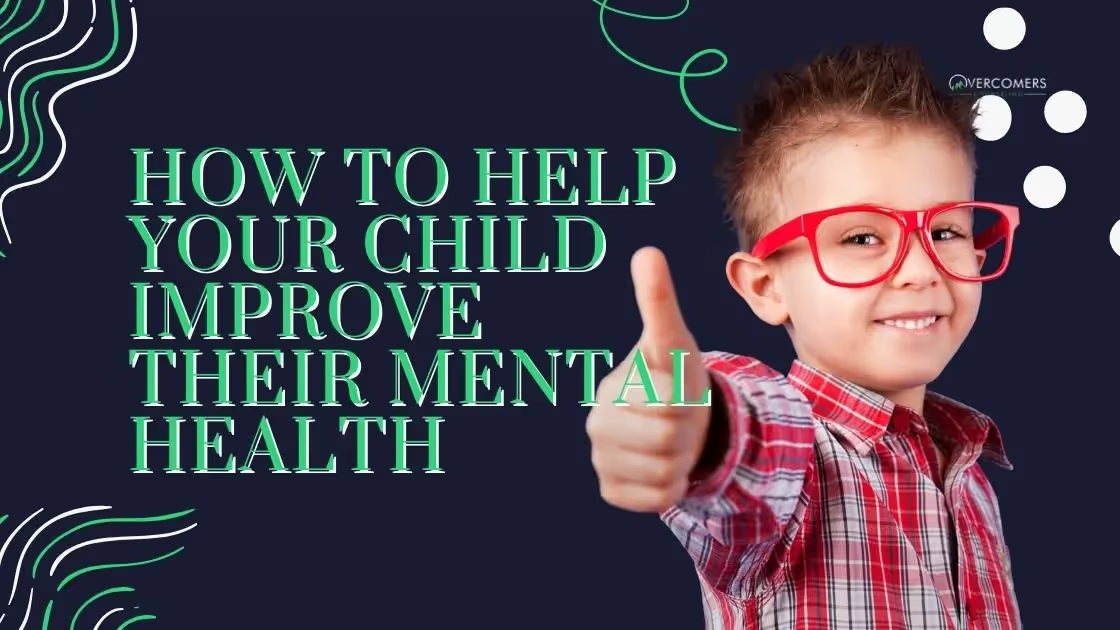Mental health is an important topic that parents and guardians should be aware of. People of all ages are susceptible to developing mental health problems....

Mental health is an important topic that parents and guardians should be aware of. People of all ages are susceptible to developing mental health problems. Even so, parents have a special responsibility when it comes to their children. They have the unique opportunity to shape their child's mind with a positive environment at home.Children learn by observing and imitating everything around them. Therefore, when parents are happy, the children can easily pick up on that too. Even if your child is young, they are still able to understand the value of a positive outlook on life. As such, there are a number of simple ways in which you can help improve your child's mental health.Here are 5 helpful tips to help your child:
It is important to teach your child about mental health. Start by having honest conversations with them about the topic. This will allow for open dialogue about mental health and how it affects people. Next, let your child know that it is okay to talk about their feelings and emotions with you as well.Encourage them to speak up if they are going through a difficult time. You can be a supportive figure in their life and help give them a sense of security. Encourage your child to recognize how they are feeling and feel comfortable discussing their emotions.
Children learn how to be happy by watching how you react to life's challenges. Therefore, your first job as a parent is to show them how to be happy.If you are constantly stressed out or frustrated with life, your child may develop negative behavioral patterns around stress or anxiety. It also sets bad habits for when your child becomes an adult and has their own struggles. Learn not to sweat the small stuff in life so your child can see a healthy response to those daily inconveniences that we all experience. Encourage your child to appreciate the small things in life and cherish ordinary moments, even if it is just a simple day at the park.
Some losses are difficult to understand and can be especially hard for children. All of the sudden, they may have a tough time sleeping or eating. Children may also be more clingy than usual. The important thing is to give your child plenty of time and space so they can process their feelings in their own way. You can help by giving them some support and guiding them through helpful activities like talking to someone who has been through the same loss.There are many ways you can help your child deal with loss and get back on track:
-Talk about the difficult issue together
-Express your love for your child
-Be there for them when they're struggling
-Encourage them to continue doing things that make them happy
-Recognize how they're feeling

Play is an essential part of a child's mental health. It's important to take the time to play with them and follow their lead.When you make time for play, you help to build your child's creativity, problem-solving skills, and imagination. This can be done through a number of activities, such as board games, puzzles, and reading books together.However, it's important that when you spend time with your child playing these games or reading books together that you maintain a positive outlook. If your child starts to lose interest in the game or story, don't get frustrated. Instead, tell them how much you enjoy spending time with them and that they should always keep trying their best even if it doesn't work out at first.
One of the most important things parents can do for their children is to give them confidence. This is an important thing to remember because children are constantly thinking about what others think of them and worrying about their self-image. This is where you come in as a parent, or guardian, to help your children develop confidence in themselves.Parents should be mindful of how they speak and behave around their children. As such, they should not constantly put down their child's efforts or talents in front of them, but instead, encourage them and compliment them. If your child does something that you are proud of, tell your child that it was an excellent idea or a job well done. By doing this, the child will feel more accepted and even more confident in themselves.Another way you can help foster your child's self-confidence is by learning about possible mental health problems they may face later on in life so you can talk to them about it when they are older.Learning about these problems can help a person understand why they're feeling certain emotions and better manage said emotions.
The first step to making a change is recognizing that we need to make a change. When it comes to mental health, teaching your child about it and setting an example is a crucial first step. But there are many other things you can do as well, like helping your child with grief, making time for play, and helping your child develop confidence. The more you can help your child develop these skills, the better they'll be at managing their mental health throughout their life.
Help your child by providing support and guidance, using positive language, highlighting the progress they have made, breaking down the challenge into smaller steps, and motivating them with positive affirmations.